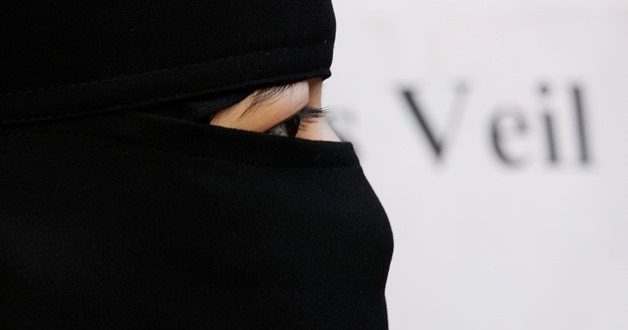Egypt Today
The Egyptian Supreme Administrative Court upheld Monday a lower court ruling banning Cairo University’s teaching staff from wearing niqab (full face veil) and rejected an appeal to overturn the ruling.
A total number of 80 niqab wearing researchers at Cairo University filed an appeal against a previous decision by the Administrative Judiciary Court banning them from the face veil on campus.
Egypt’s State Commissioners Authority (SCA) recommended upholding the ban decision, saying that niqab affects the education process, and communication between students and the teaching staff.
However, the Egypt’s State Commissioners Authority recommended last February rejecting the lawsuit, considering it a matter of personal freedom.
The SCA said in a statement that niqab cannot be moved from being permissible to being prohibited. It added that covering Muslim women’s faces, although not obligatory according to many Islamic opinions, is allowed in Islam.
Niqab is a piece of cloth some devoted Muslim women prefer to wear to cover their faces, while some think it is obligatory.
This case has sparked widespread controversy in Egypt; as several lawmakers have earlier submitted bills requiring the state to pass a ban.
In 2016, all women working at Cairo University’s hospitals were banned from wearing niqab. A year later, the American University in Cairo (AUC) rolled back on its decision to ban students and faculty staff from wearing niqab on campus after meeting with niqab students.
Gaber Nassar, former Cairo University president, said in a previous interview with Egypt Today, called for banning niqab in all public places nationwide, considering it a political issue.
MP Ghada Ajami submitted a bill imposing a fine of £E 1,000 ($56.8) on women who wear the niqab or ‘face veil’ in public places like restaurants, parks or universities. The fine fee will increase with repeated offenses.
Ajami argued that the face veil had become a source of sedition in the Egyptian society. “It aims to change the moderate character of Islam in Egypt and reflects the extremist ideology of Salafi (ultraconservative) movements, not to mention that it has split society into those with niqab and those without”, Ajami told local press.
A wide number of parliamentarians rejected the draft law, saying that the ban violates public freedoms, and that it may lead to further divisions and strife in the Egyptian society.






